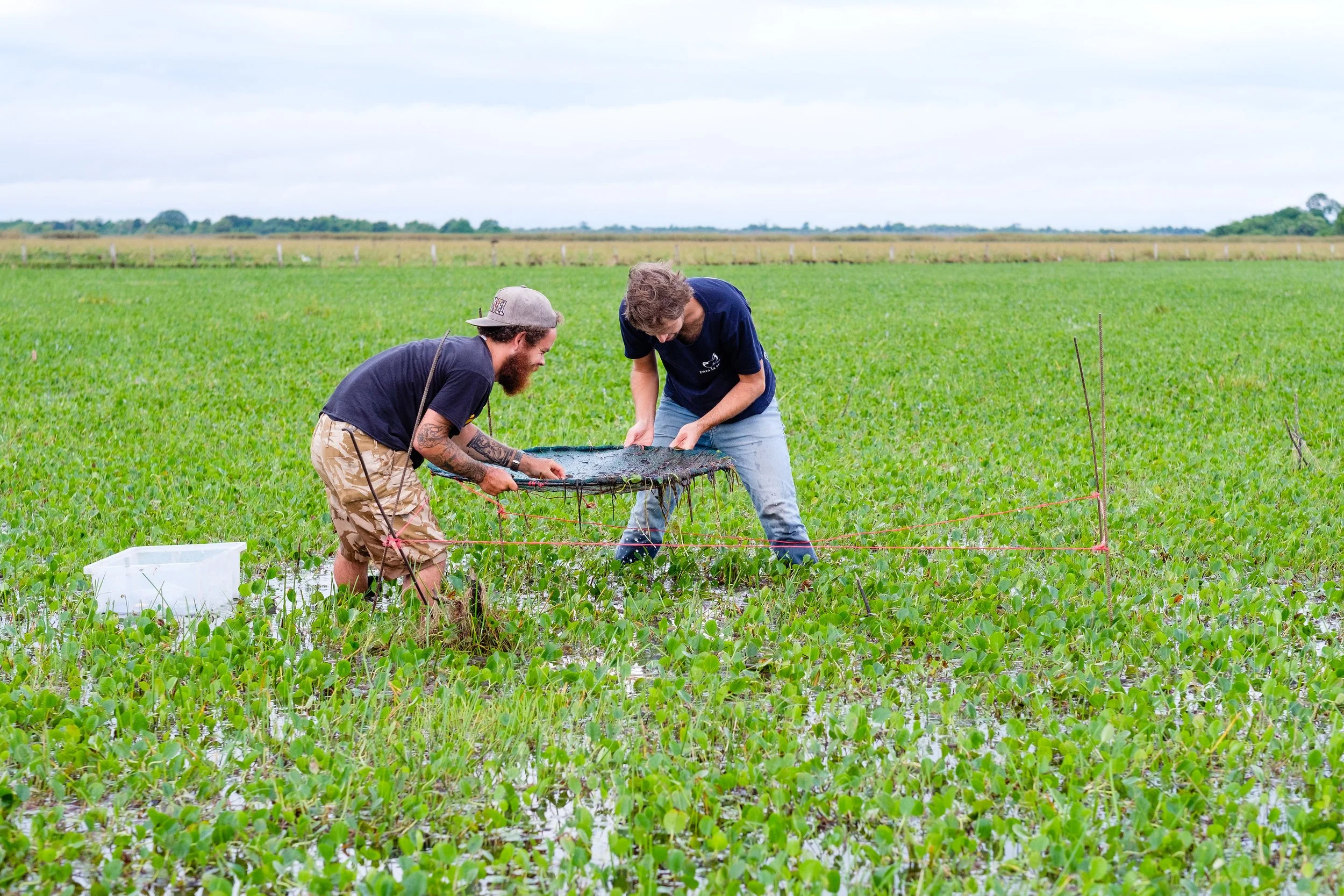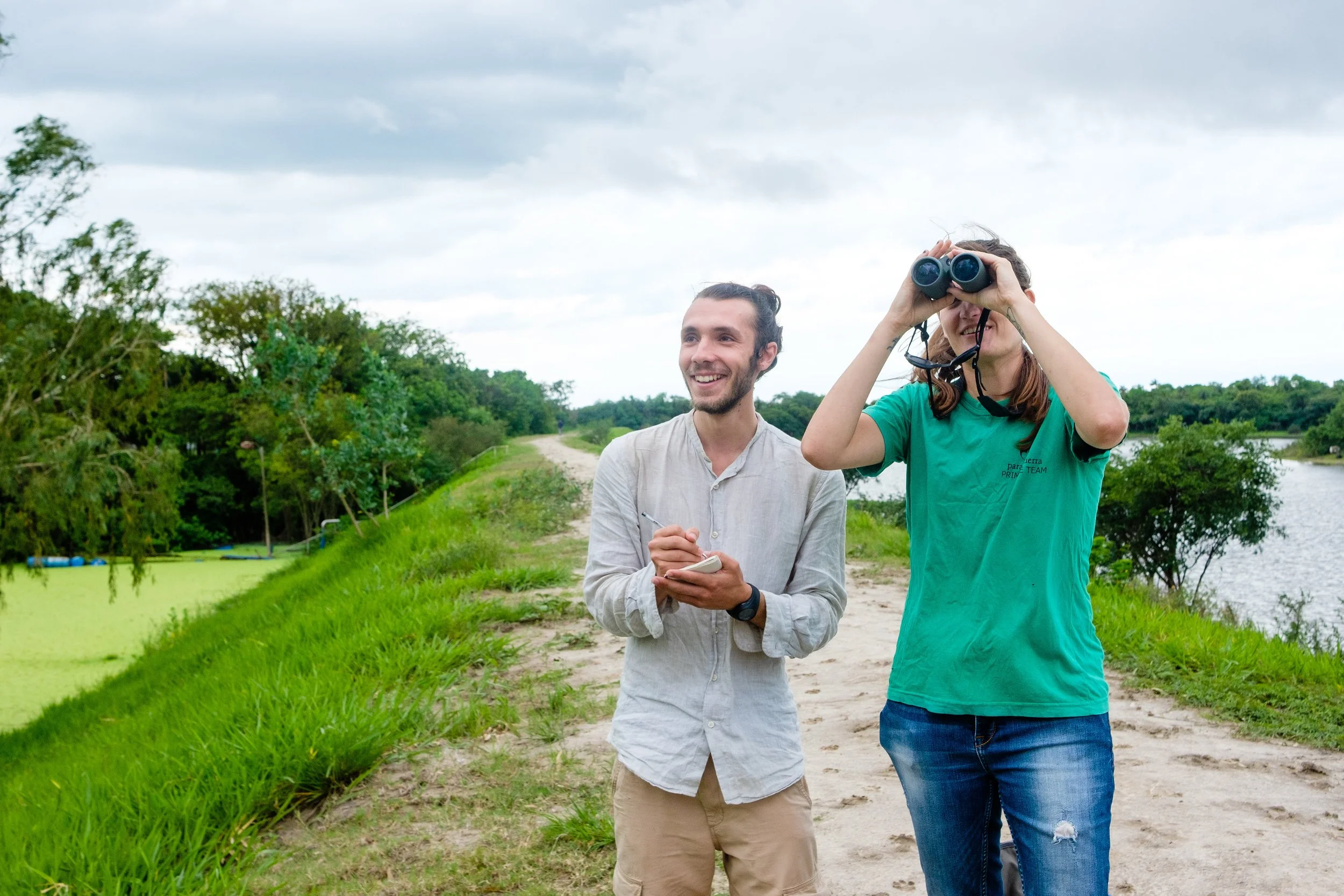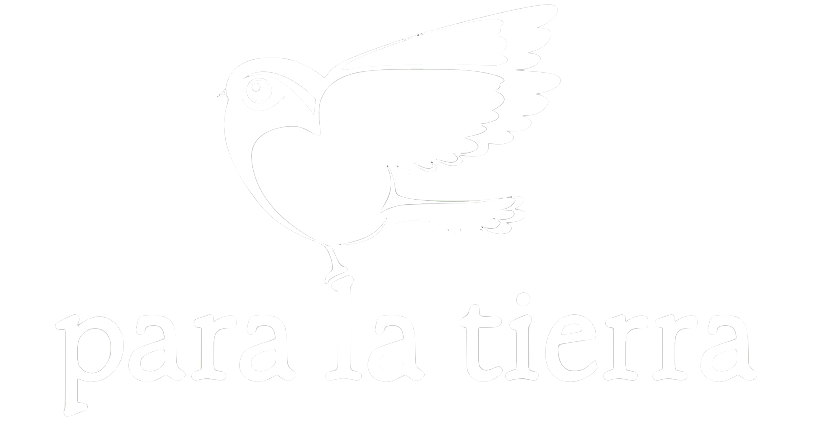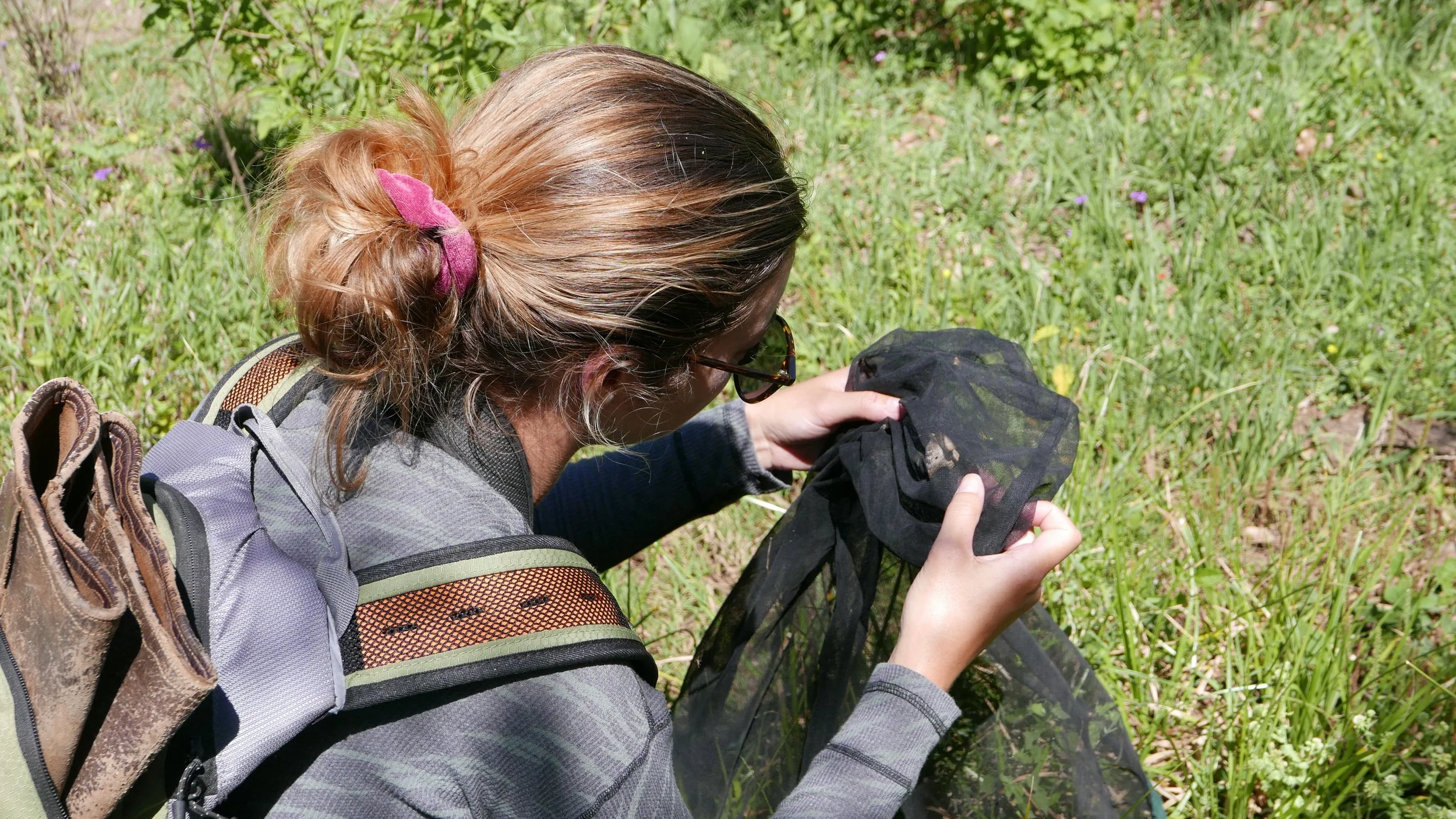
Tropical ecology research internships
As a research intern, you can design and carry out your own research project in your area of interest – with support from our award-winning scientific team. With so little known about the flora and fauna of Ñeembucú, your project has a high chance of being published and will help us raise the profile of this unique ecosystem.
Design your own wildlife project and contribute directly to the conservation of the Ñeembucú wetlands.
entomology
Insects are the most diverse group of animals, yet little is known about their ecology. Ñeembucú offers many opportunities for specialised studies with this species-rich taxa that is also an incredible bioindicator.
Project options include:
Butterfly biodiversity and inventory
Caterpillar rearing and ecology
Dragonfly ecology
Moth seasonality
Water invertebrate diversity
herpetology
The Ñeembucú wetlands is home to a plethora of reptiles and amphibians. While the tropical weather presents ideal conditions for colourful reptiles, seasonal ponds attract a variety of unique amphibians, the most threatened group of vertebrates.
Project options include:
Amphibian population counts
Morphometrics and reproductive stages
Reptile surveys
Seasonality of frog species
Ichthyology
Pilar is nestled between the Río Paraguay and the Arroyo Ñeembucú, which are home to a wide variety of fish species. Together with the seasonal ponds in the wetlands, this offers many possibilities for exciting ichthyology projects.
Project options include:
Fish inventory
Fish ecology
Anthropogenic impact on species richness and abundance
Mammalogy
The gallery forests in the Ñeembucú wetlands are home to an abundance of mammals, from opossums to jaguarundis to maned wolves. The Yegros Paso grassland just outside the city is home to one of the four known populations of the endangered Pilar tuco-tuco.
Project options include:
Burrowing behaviours of the Pilar tuco-tucos
Trapping and chipping of the Pilar tuco-tucos
Trophic interactions of the Pilar tuco-tucos
Population studies with the Pilar tuco-tucos
Bat diversity and abundance
Sherman trapping of small mammals
Ornithology
The town of Pilar and the surrounding wetlands are home to so many avian species that Pilar has been nicknamed the ‘City of Birds’. This provides an incredible opportunity to study populations and behaviours of a wide variety of aquatic and terrestrial species in diverse habitats.
Project options include:
Morphometrics of avian species
Nest and burrow monitoring
Parasitology of nests and feathers
Population studies of waterbirds
Waterbird species ecology, including migrants
Weather impacts on avian diets
Primatology
Ñeembucú offers the incredible opportunity to study the arboreal black-and-gold howler monkeys (Alouatta caraya) in a variety of habitats, from the gallery forests in the wetlands to people’s gardens in the city. This presents a unique chance for human impact studies.
Project options include:
Behavioural studies
Spatial occupancy
Collection of faecal and urine samples for parasitological, and future hormonal and genetic analysis
Vocalisation
Social acceptance of the urban howler monkeys
Why PLT?
Our interns finish the programme taking away a plethora of new skills, a professional reference and one heck of an experience to share at their next interview. But they also leave behind a great deal; all intern projects are directly involved in the conservation of this threatened habitat.
Scientific studies of the area help raise awareness of the ecological importance of Ñeembucú at national and international levels. Our projects are regularly published in scientific journals and many interns make their way onto the author line.
PLT achievements
160+ scientific papers published
120 new records for Paraguay
10 new species discovered
Intern achievements
150 careers in conservation
35 scientific articles published/ under review
15 PhDs and PhD candidates
Apply to become a PLT intern







